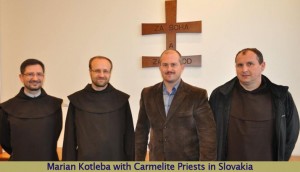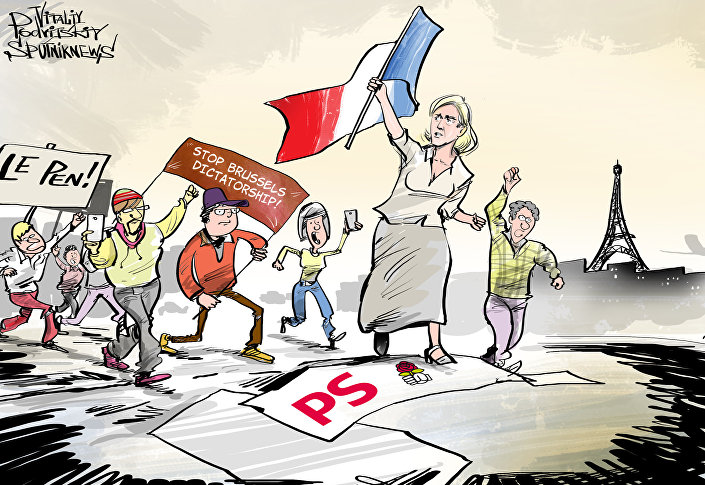THE WORLD BANK
International Bank for Reconstruction and Development
Like the International Monetary Fund (IMF), the World Bank (WB) was created in 1944 at the Bretton Woods Conference held in the United States at Bretton Woods, New Hampshire. The WB is an international lending institution consisting of approximately 177 member states for which it guarantees credit or to whom it makes loans from a portfolio of approximately $220 billion. Like the IMF, the WB is concerned with economic restructuring according to the neoliberal model and with major infrastructure projects intended to enhance economic efficiency. Although the WB does lend money to rescue defaulting economies (the IMF is more proficient at this), its primary focus is funding economic development, environmental sustainability, health projects, infrasructure etc. In any one year, the bank’s total loan portfolio ranges from approximately $5 up to $30 billion US dollars spread out among member states.
The WB, headquartered in Washington, DC, exists to promote and facilitate foreign investment and international commerce. WB loans, like IMF loans include “Structural Adjustment Programs” (SAPs) intended to nudge borrowing countries toward structural reforms in a market oriented direction. Loans also include policy requirements that reflect a neoliberal economic bias stipulating such things as:
Social Austerity (reductions in social spending on such things as health and welfare)
Reduction of Subsidies (on basics such as food and energy)
Deregulation
Reduction of Trade Barriers (such as taxes on imports that often compete with domestic supply
Promotion of Foreign Ownership of Businesses
Conversion of Agricultural Yield from Food to Cash Crops for Export
Privatization
Current concerns of the WB include deforestation, depletion of the ozone and other ecological concerns, AIDS, and vaccinations for communicable diseases. The WB has set goals to help realize United Nations Millennium Development Goals set in 2000[1]. In this regard, the G8 (a group of eight industrialized nations—United States, Germany, France, Italy, Japan, United Kingdom, Russia and Canada, —that promote global consensus on international security, economic growth, terrorism and energy, and crsis situations, 2005) guaranteed up to $55 billion dollars to the WB, IMF and African Development Bank to cancel the debt of heavily indebted poor nations.
The WB consists of two entities:
(1) The International Development Association (IDA) and
(2) The International Bank for Reconstruction and Development (IBRD).
International Development Association
The IDA was established in 1960 and is headquartered in Washington, DC. It consists of 173 member countries and offers both grants and loans to over 80 member states with the highest credit risk – over half of these countries are in Africa. Receiving countries are evaluated according to per capita income (below $1200 per year) and their record of implementing policy requirements aimed at economic and social reform and poverty reduction. The IDA is considered the friendly or soft lending arm of the World Bank: It provides loans for up to 40 years, with built in grace periods often up to ten years, and low interest rates 1-3 %. Often loans are provided at no interest to regular client states. Like the IMF, loans come with neoliberal assumptions about economic growth that must be met to continue in good standing.
In the new millennium, the WB has financed numerous projects including access to clean water for over one hundred million people, for the training of over three million teachers, and for the vaccination of over three hundred million young people. It has also made hundreds of millions of dollars in loans available to small businesses and has funded extensive bridge and road repair.
WB funds come through contributions of member states and from occasional supplementary funds from the IBRD and the International Finance Corporation (IFC)[2]. Funds are replenished according to a three year cycle. Almost 60% of all funding originates in the United States with another 30% coming from France and England. In 2014, the fund was replenished with almost $50 billion US dollars from contributing states. Refunding does not occur without extensive discussion and amendment of goals and policies due to prevailing political concerns brought by contributing members.
Interested primarily in health care, education, infrastructure and clean water in the neediest states, over half of IDA’s capital is issued to fund projects in thirty African states. Recent special, interests include agriculture, electricity, education, and roadways.
International Bank for Reconstruction and Development
The International Bank for Reconstruction and Development (IBRD) is considered the “robust arm” of the WB. As such, it makes loans available to middle income nations. The IBRD provides financial services including grants, risk guarantees, and loans; like its sisters bank the IDA, the IBRD is headquartered in Washington DC. The IBRD was established in 1944 with the goal of providing financial assistance for the recovery of Europe following World War II. It is governed by a board of governors with a governor from each of its 187 member states.
Like the IDA, the IBRD receives funding from its member states, but unlike the IDA it receives most of its funding by borrowing from private investors on the international investment market by selling bonds – the IBRD funds only sovereign states and projects backed by such states. On average, the IBRD raises in a range form $20-$30 billion dollars in bond sales annually of which approximately 90% is used for financing projects; it has a debt portfolio[3] of approximately $100 billion.
The Bank offers a number of financial services and products, including flexible loans, grants, risk guarantees, financial derivatives, and catastrophic risk financing. It reported lending commitments of $26.7 billion made to 132 projects in 2011.
ANALYSIS:
Although World Bank policies have, in fact, generated wealth, newly created wealth tends to concentrate in small pockets of financial institutions, political patrons, and those with strong ties to the developed North. It is becoming increasingly difficult for third world governments to convince their people that short-term austerity will result in long term prosperity when after thirty years all it has done is increase glaring disparity. Increasing disparity is increasingly associated with increasingly autocratic governments, which are necessary to implement and enforce World Bank SAPs that have worked to polarize society and essentially harm the people in whose name they are introduced.
Structural Adjustment have exacerbated poverty,
“Since the 1980s adjustment has helped create a net outflow of wealth from the developing world, which has paid out five times as much capital to the industrialized countries of the North as it has received.”[4]
Since Third World leaders and their staff are often educated at business schools in the North America (along with World Bank staff financers and economists educated in neoliberal theory) and, as a result, become advocates of the liberal market economy, when markets fail, they are, more often than not, perplexed and unsure where to turn for answers. Following a decade of imposed neoliberal polices that brought economic depression to Columbia, Columbian President Galviria stated,
“I have to confess that the evolution of the country after my government has left me perplexed, like many other Columbians” (President Galviria of Columbia). [5]
Columbia and other nations habituated to the Word Bank structural model have experienced ever mounting debt such that the “debt of the developing world equals about one-half their combined GNP and nearly twice their total export earnings”. This is the result of SAPs that orient these economies “toward generating foreign exchange…designed to ensure that debtor countries continue to make debt payments.[6] Although exports are high, they fail to meet social needs because domestic companies are often privatized and end up in the hands of foreign investors who are able to repatriate profits to Northern bank accounts.
Moreover, since exports tend to increasingly consist of cash crops, farmers are often not producing enough food crops to feed their own people. Exports are intended to pay salaries of workers who in turn are able to buy imported food; however, because the market is unregulated, food prices tend to rise making it increasingly difficult to meet basic nutritional needs, which were once provided by indigenous third world farmers themselves.
This is not the only way that World Bank loans limit the creative ability of local peoples to help themselves. Rather than being able to spend the money efficiently looking for cost-effective materials and contracting experts from the home country, World Bank loans are notorious for including agreements that bind third world parties to purchase not only products and materials from developed countries but expert advice as well.
While SAPS help countries to service their debts and help enrich a small class of political opportunists, financial officers, and corporate executives, workers continue to live in poverty exacerbated by decreased social services and rising food prices. Moreover, they are alienated from economic and political decision making that affects their lives and their livelihood, and by turning them into individual competitors estranges them socially and culturally from each other. Interestingly, as much as the IMF, World Bank and industrialized nations of the North laud free markets, the leading nations of the North have all been assisted by government spending, trade tariffs, subsidies, and generous social welfare programs denied to the developing nations.
Because of its social costs, this model of development is not likely to succeed. New development models are being developed that are more congruent with social needs and the human dignity of workers that are involved in micro finance and economic development rather than top down macro and structural approaches. Rather than placing all the burden on the state thereby depriving its citizens of initiatives, new approaches are operating closer to the people and include intermediate social group such as trade unions, human rights advocates, farmer cooperatives, fraternal and self-help organizations that are more focused on family needs, health care, increasing earnings, cultural development, social organization and broad communal consensus.
A vanguard of Christian philosophers and social scientists foresaw the negative consequences of overemphasis on macro development, unregulated capitalism, statism and free market cronyism. Their ideas found their way into Catholic Social teaching, which has over the course of a century and a half, developed a well thought out approach to human social-economic-political development congruent with the kind of micro-development that is organically developing throughout the third world.
_____________________________________
FOOTNOTES
[1] The Millennium Summit of the United Nations gathered in 2000 to articulate eight goals necessary to enhance international development. All member states and over twenty international organizations agreed to work toward achieving the following goals by 2015.
- Eradication of extreme poverty
- Achievement of global primary education
- Promotion of gender equality
- Reduction of child mortality
- Improvement of maternal health
- Combating HIV/AIDS
- Ensuring environmental sustainability
- Developing a global partnership for development
[2] The IFC, headquartered in Washington DC, was created in 1956 to stimulate economic development by using its funds to invest in private sector for profit ventures aimed at reducing poverty. It is particularly concerned with agriculture, health, microfinance, and education. Currently, it invests approximately $18-20 billion annually in such projects .
[3] A group of investments in debt owned by a bank or company intended to earn interest. The portfolio includes such things as debtor’s names, amounts of debts, balance due on debts etc.
[4] Global Exchange: http://www.globalexchange.org/resources/wbimf/faq
[5] Committee for the Abolition of Third World Debt (CADTM); http://cadtm.org/spip.php?page=imprimer&id_article=668
[6] Global Exchange: http://www.globalexchange.org/resources/wbimf/faq
 Because he is perceived as an agent of change, he finds support among the poor, marginalized, and young voters who are increasingly vocal and desirous for political and economic change that favors the broader common good.
Because he is perceived as an agent of change, he finds support among the poor, marginalized, and young voters who are increasingly vocal and desirous for political and economic change that favors the broader common good. Although the National Front (FN) was launched on October 5, 1972, it is part of a conservative tradition that opposed the French Revolution of 1789. Consequently,
Although the National Front (FN) was launched on October 5, 1972, it is part of a conservative tradition that opposed the French Revolution of 1789. Consequently,